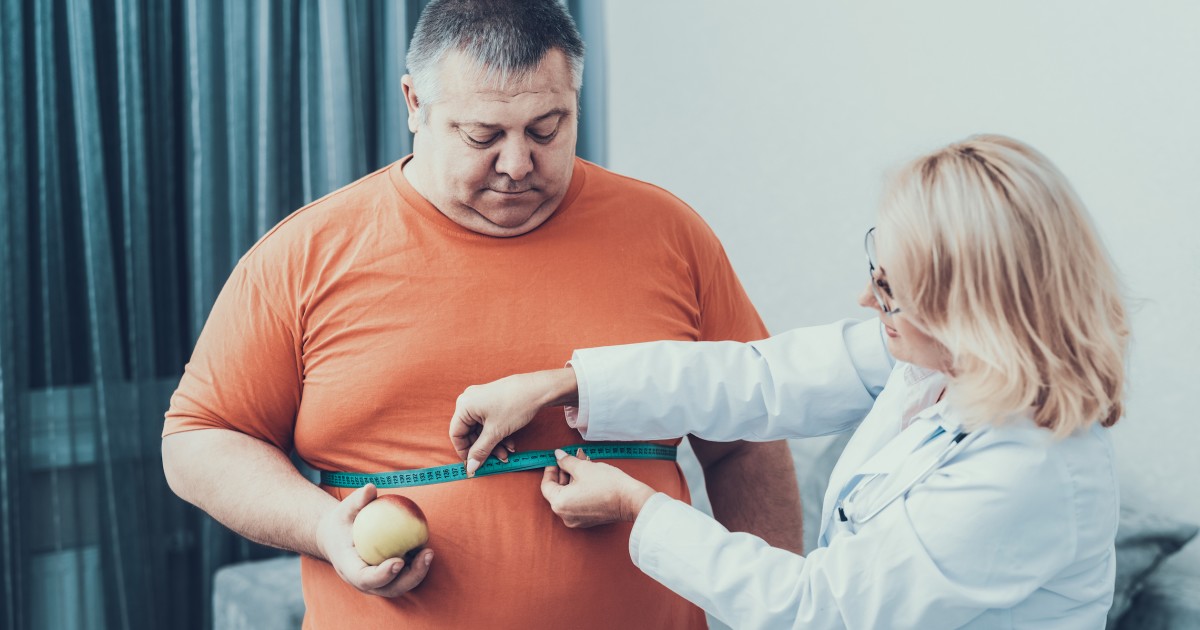
Many serious health problems are associated with obesity, including heart disease, diabetes, stroke, and high blood pressure. And new research suggests that the pandemic has had a detrimental effect on waistlines.
“When the pandemic began and shelter in place orders were happening across the nation, it made us think about the effect those orders and the changes in people’s day-to-day life would have on their cardiovascular health,” said Dr. Anthony Lin, an internal medicine resident at the University of California, San Francisco. “We were particularly curious about the impact it would have on people’s weight. So we decided to look at it through our own research.”
Lin is the lead author of a new article in the Journal of the American Medical Association that examined 269 patients who had blue-tooth connected smart scales and were part of the Health eHeart Study. The researchers found an average weight gain during the pandemic of about 1.5 pounds per month, or 18 pounds over a year.
MAJOR HEALTH TOLL FROM COLLAPSE IN CANCER SCREENINGS IN PANDEMIC
The two likely causes are stress eating and lack of exercise. A BlueCross BlueShield survey found that almost half of adults have been eating more during the pandemic. A recent study in the Annals of Internal Medicine examined daily step count worldwide using smartphones found that in the U.S., daily step count had dropped 15% about two weeks after the pandemic was declared.
But the problem may be much worse than what was discovered in the JAMA study.
“The people in the Health eHeart Study are probably underrepresenting the average American,” Lin said. “The participants in the study enrolled in a program that tracks their cardiovascular health, and that may mean they are more health-conscious on average.”
Dr. Domenica Rubino, who runs the Washington Center for Weight Management and Research, said she has seen the pandemic affect her patients both ways.
“Some are doing better because they are better able to manage their day,” Rubino said. “But I have other patients who, with the anxiety, isolation, and worry, are now struggling more with their weight.”
She expects that pandemic-induced weight gain will have long-term consequences, such as higher rates of heart disease and diabetes.
“I would be surprised if it didn’t have an impact, especially since the pandemic is not over yet,” Rubino said.
Dr. Leanne Redman, director of the Reproductive Endocrinology & Women’s Health Laboratory at Louisiana State University, recently co-authored a study that found that people suffering from obesity had a higher overall weight gain during the pandemic.
“If the unhealthy behaviors continue, the long-term health consequences could potentially be very damaging. Those health consequences are of even greater concern for people with obesity,” Redman said. “Our study did not measure long-term health complications, but we know that it’s far more difficult to lose weight and keep it off than to gain it, no matter the cause.”
It is possible that the weight gain from the pandemic might have already had serious health consequences. Death from heart disease increased during the pandemic, according to a study in the Journal of the American Journal of Cardiology.
That has been attributed to patients’ reluctance to visit their doctor or the emergency room for fear of contracting COVID-19. But Rubino argued that weight gain could have been a factor.
“Weight gain is going to increase insulin resistance, and it’s going to increase blood sugar, which are related [to heart disease],” said Rubino.
It is unlikely that a return to normal will fix the problem.
CLICK HERE TO READ MORE FROM THE WASHINGTON EXAMINER
“There may be some people who didn’t struggle with weight before the pandemic, and once they get back to their normal routine, they’ll be fine,” said Rubino. “But for people who struggle with weight, their bodies will likely get comfortable at their new weight, which is typically what we see.”
